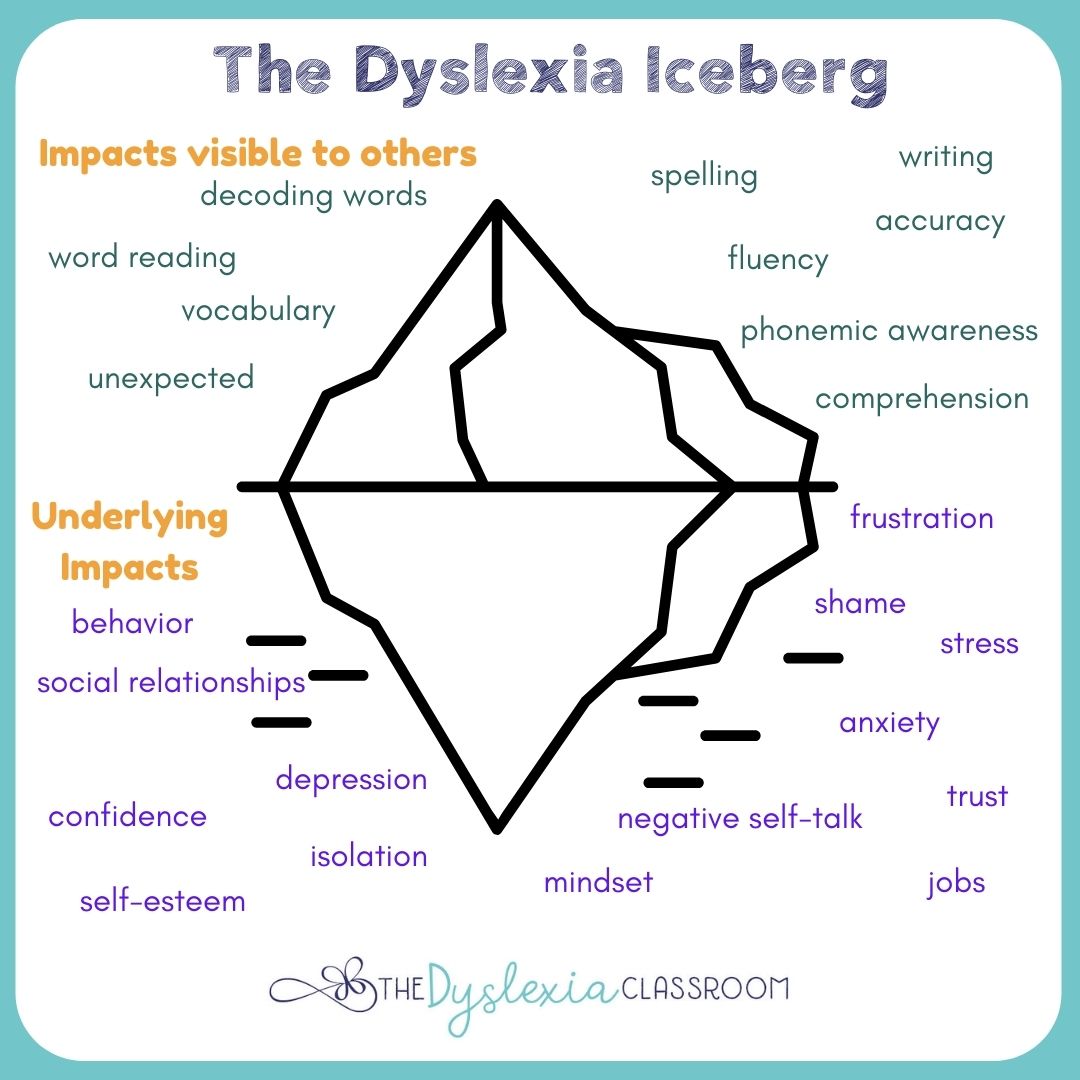The Importance of Knowing the Hidden Impacts of Dyslexia

As educators and parents, we often hyper-focus on the academic components surrounding reading and writing for dyslexic learners. This makes sense because dyslexia shows itself in the educational setting. And yet, there is so much more that dyslexia impacts. Unknown to most people, many impacts of dyslexia reside below the surface, hidden from view, yet their effects can be profound.
This posts' main image, 👆, is a powerful reminder that what you see isn't the whole picture. This is especially true for our dyslexic learners.
Some things I often hear:
"But he/she is doing so well!"
"She is getting straight A's and is a model student."
"I don't think that he needs all of these accommodations. He is doing fine."
I often hear this once a student has broken the code or is older when identified as having dyslexia. They have developed excellent coping skills, are getting good grades, and are considered on grade level...but these successes don't tell the whole story.
What We May Not Know About Students with Dyslexia
While their struggle may not always be visible to us, students with dyslexia often:
- feel insecure in their reading and writing abilities
- feel anxious when asked to read in front of peers
- spend more time completing homework assignments than their peers (what is considered a 30-minute assignment takes them 1.5 hours to complete)
- are at higher risk for suicide
- don't want to ask for the accommodations they need because they are embarrassed or feel singled out
- have anxiety
- keep it together during the school day and fall apart at home.
The Dyslexia Iceberg

We can look at dyslexia as an iceberg. Some parts are visible to us as educators, parents, and students. We encounter these pieces in school and academic expectations, but many of the underlying impacts go unseen. Yet, they hold just as much of a need for our awareness and recognition. HERE is a free download of the dyslexia iceberg shown above. Having it visible for others will help us share this important information. Let me know how you showcase it.
Children with dyslexia need us to have a deeper understanding of dyslexia and how it impacts their learning AND social-emotional development.
We need to connect academics with social-emotional learning so that we help the whole child. This is my reminder to myself and you to dig deeper, make those connections, and be a champion for our children.
When we understand dyslexia and all of the pieces come together, our children can take flight both academically and emotionally.
How Can We Understand the Impacts of Dyslexia?
- One way to gain a deeper understanding of these impacts is to read more about dyslexia. HERE is a link to a booklist that I have compiled of resources that you may find helpful.
- Podcasts: There are many great podcasts available. The Together in Literacy podcast is one that Emily Gibbons and I have created to share information about dyslexia. Thank you to those who have listened and supported us this year! We always appreciate it when the podcast receives reviews and is shared so that we can continue to talk about our experiences and work with students with dyslexia, strategies we use, how we connect SEL to our lessons, and the importance of bringing the two together to see growth and meet the needs of the whole child.
- Ask questions. The more we ask and share answers, the more we help others understand dyslexia. What questions do you have? Leave them below in comments, and I'll answer them in future posts.
Have a great week!
Casey

This information is the intellectual property of @2016 The Dyslexia Classroom®. Do not use or repurpose without expressed permission from The Dyslexia Classroom®. Please email Casey@thedyslexiaclassroom.com for permission, and give The Dyslexia Classroom® an attribution if you use, reference, or quote/paraphrase copyrighted materials. This includes but is not limited to blogs, social media, and resources.



